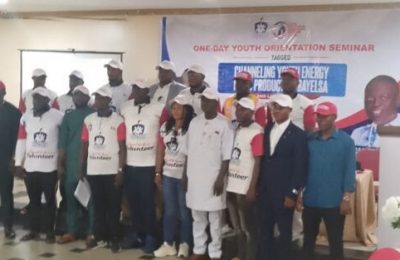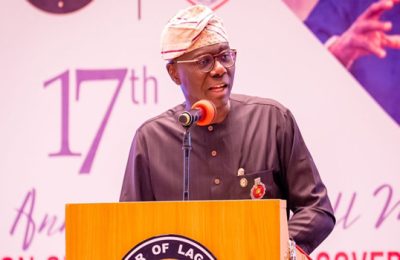
SOMETIME in 1913, British Quaker Elizabeth Fry, commemorated on the £5 note until May 2017, saw a ghastly image at Newgate Gaol: two women were busy taking clothes off a dead baby to dress a living one. Fry was in the prison to distribute clothing to the female prisoners, but the sight completely changed her life’s course. She set about reforming life in UK prisons, and would be venerated by generations to come. That, really, is the nature of life. Where would we all be without (random, planned) acts of kindness? Dr. Bode Agbaje, one of my teachers when I took elective courses at the Department of Linguistics and African Languages in OAU, said something that has been difficult to forget: where a meeting is being held for your advancement in life, you usually would not be there.
But this world is not only a field of kindness; it is also, and most usually, the domain of cruelty. That is why for every act of kindness you can mention across history, there are at least a dozen acts of cruelty. The Ushtashi of WWII are, for me, the most cruel killers you can think of, but let’s not forget the Sino-Japanese War of 1937 during which Iwane Matsui, commander of the Japanese forces, gave his troops orders to literally obliterate the people of Nanjing just to boost the ego of Japan. As 300,000 people perished in just a little over a month, with men forced to rape their relations and children buried alive as the conquerors raped their mothers, some Japanese officers held a “sword contest” to determine who could behead the most Chinese in a day!

This brings me to the chilling incident that birthed this piece. A police woman and her two children were set ablaze this week by one Nnaemaka Nwosu in the Nnokwa community of Idemili South, Anambra State. The victim’s offence? She had a quarrel with the suspect, a native of Amawbia community who had sought her (the victim’s help) after being divorced and de-housed by her husband. The police woman saw her fellow woman in dire need of shelter and offered help. But Nwosu, like all venomous snakes, was always going to bare her fangs: following a fight between her and her host, she reached for a pestle, struck the victim’s head with it, and then did worse. Over to the state police spokesman, DSP Tochukwu Ikenga: “While she (the victim) became unconscious, she (Nwosu) tied her with her two children and set them ablaze.” The victims now lie in everlasting silence.
As the Yoruba say, oore niwon (literally: kindness has/requires measurement). The deceased was an Oninu-ire (The one with a mind to do good; the kind one), but as our elders say, “ara la mo, a o mo’nu” (It is the body we know, not the mind), an idea that the Bard of Avon captured in his famous quote: “There’s no art to find the mind’s construction in the face.” If there was, the Berom man whose story I learnt while obeying Nigeria’s clarion call in Dokan Kasuwa, Plateau State, would not have met such a disastrous end. He had summoned the totality of his inner courage and accommodated a stranger and his polygamous family while war raged between the indigenous Plateau population and the strangers in Jos. It was a dangerous, treacherous thing to do—his people would literally have doused him in fiery flames if they knew–but he placed friendship above safety.
Because the mouths were many, the food stock quickly succumbed, and the Berom man, confident that his kinsmen would show him kindness even in war, went out in search of food for his family and his guests. Alas, food he did get, but his family he did not. He found his wife and children in a pool of their own blood: the guest had slaughtered them and escaped with his own wives and children. The Berom man became childless and wifeless in just a few hours. Oore niwon!
It is good to do good, but not to do it without measure. It was good that the Yoruba of Ilorin did vagrant Alimi; they flung open the recesses of Empire and welcomed the lowlife with song and dance, but he would later destroy his host and helper with a festival of arrows, and today his offspring huff and puff over a land that continues to reject them, hiding hegemony under religion and purveying dubious history.
Folks, oore niwon! Many are serving jail terms for their noble acts of kindness; many lie under the earth, forever silenced. Homes have been broken and lives irreparably shattered because someone thought to do good. The wicked never appreciate kindness; they crave cruelty, always. As they say in this land, people hear only Go and not Come. Patience wears thin very quickly, and helpers conveying victims injured in an auto crash to hospital are mistaken for callous killers. A man taking his dead son home for burial in the South South was nearly lynched by a mob in Lagos which accused him of a murder he had not committed.
Some people invited to partake in a meal restrain the hands of their host, asking to first have their fill. That’s the kind of person Nnaemaka Nwosu is. She killed her helpers without batting an eyelid. In journalism, they say “if in doubt, don’t publish.” I say if in doubt, don’t accommodate anyone, particularly people you haven’t seen in years. Be measured in kindness. Ignore the admonition to “accommodate your countrymen,” like the Benue people did and reaped evil in return, with endless massacres of their people by the blood merchants from distant lands.
Senseless on social media, many Nigerians download details of their lives to friends they are just meeting after 19 years. They give out information that could be used to fast-track their funeral. Let’s learn: there are companies today run by people who killed the original owners, and vast acreages of land controlled by usurpers. While we analyze the big issues of life, let us remember the enduring nature of human passions. I do not blame the deceased policewoman with a heart of gold: may her soul and her children’s rest in sweet repose. But we must all remember the sardonic saying, “No good deed goes unpunished.”
Re: Nigerians are groaning and dying
Sir, were most Nigerian masses not incorrigible masochists, misologists and misoneists, Nigerians are groaning and dying (a fantastically well-written ,must-read piece) would be timely food for thought. Frankly, sir, you are a terrific writer. Kehinde Olalemi; +234 916 521 5915
READ ALSO FROM NIGERIAN TRIBUNE







